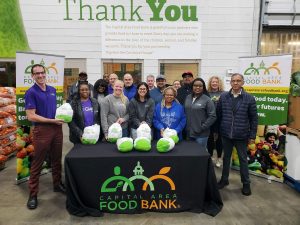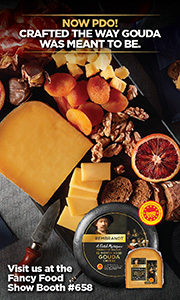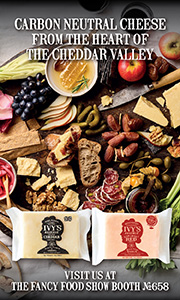
Channel Business
Walmart Commits $2M to Support Direct Relief in Gaza, Israel
 Walmart, Inc. and the Walmart Foundation have continued to look for ways to support people impacted by the devastating violence in Israel and Gaza that has unfolded over the past month following the terrorist attacks by Hamas. With the pause in fighting, the Walmart Foundation is committing $1 million to support Direct Relief, a nonprofit organization that will help provide emergency medical aid to civilians in Gaza as conditions permit.
Walmart, Inc. and the Walmart Foundation have continued to look for ways to support people impacted by the devastating violence in Israel and Gaza that has unfolded over the past month following the terrorist attacks by Hamas. With the pause in fighting, the Walmart Foundation is committing $1 million to support Direct Relief, a nonprofit organization that will help provide emergency medical aid to civilians in Gaza as conditions permit.
This donation builds on the Walmart Foundation’s $1 million investment made earlier in Magen David Adom’s emergency services work in Israel.
“Our hearts remain with our associates, customers and members who have been personally impacted, as well as all those suffering as a result of this situation,” the company said in a statement. “Collectively, let’s focus on demonstrating compassion and kindness to one another. At Walmart and Sam’s Club we are working to ensure everyone feels they belong.”
Walmart Inc. is a people-led, tech-powered omnichannel retailer helping people save money and live better – anytime and anywhere – in stores, online, and through their mobile devices. Each week, approximately 240 million customers and members visit more than 10,500 stores and numerous eCommerce websites in 19 countries. With fiscal year 2023 revenue of $611 billion, Walmart employs approximately 2.1 million associates worldwide.
Walmart continues to be a leader in sustainability, corporate philanthropy, and employment opportunity. Additional information about Walmart can be found by visiting corporate.walmart.com, on Facebook at facebook.com/walmart, on X (formerly known as Twitter) at twitter.com/walmart, and on LinkedIn at linkedin.com/company/walmart/.
Walmart.org represents the philanthropic efforts of Walmart and the Walmart Foundation. By focusing where the business has unique strengths, Walmart.org works to tackle key social and environmental issues and collaborate with others to spark long-lasting systemic change. Walmart has stores in 19 countries, employs more than 2 million associates and does business with thousands of suppliers who, in turn, employ millions of people.
Walmart.org is helping people live better by supporting programs to accelerate upward job mobility for frontline workers, advance equity, address hunger, build inclusive economic opportunity for people in supply chains, protect and restore nature, reduce waste and emissions and build strong communities where Walmart operates. To learn more, visit www.walmart.org or connect on X (formerly known as Twitter) @Walmartorg.
For more news of interest to the grocery industry, subscribe to Gourmet News.
Circle K Opens 100th Location in Sweden, Adds EV Charging Points
 Circle K has achieved a significant milestone in Sweden with the opening of its 100th location in the country. As part of its commitment to sustainability, one-third of these locations now provide charging facilities for electric vehicles.
Circle K has achieved a significant milestone in Sweden with the opening of its 100th location in the country. As part of its commitment to sustainability, one-third of these locations now provide charging facilities for electric vehicles.
In the past year alone, Circle K has added 160 new charging points for public use, bringing the total number of charging points in its nationwide network to over 465. This expansion allows more EV owners to conveniently charge their vehicles, promoting the adoption of cleaner transportation alternatives.
The growing demand for EV charging infrastructure has prompted Circle K to further invest in expanding its network. An additional 112 charging points are completely ready – but waiting to be connected to the power grid.
“In parallel with the high pace of the rollout, we also put a lot of focus on everything else related to charging – such as making the charging experience really smooth,” said Jenni Alterling, senior manager of e-mobility at Circle K.
In addition to the 112 charging points that are ready for grid connection, another seven stations are being built, which will host 42 more charging points.
“Of course, it is frustrating that we build quickly, but then have to wait for a grid connection. We’ve pointed this out for many years, but we’re building at triple the rate anyway, and we’ll continue to do so. With this rate of expansion, we will reach 1000 charging points in 2026,” Alterling concludes.
With the opening of its 100th location and the continuous expansion of its EV charging network, Circle K is demonstrating its commitment to sustainable practices and providing innovative solutions to meet the evolving needs of its customers.
For more news of interest to the convenience store industry, subscribe to Gourmet News.
Giant Food, Shady Brook Farms Donate 11K Turkeys to Food Banks
Giant Food, the leading greater Washington, D.C. regional grocery chain, has announced its annual holiday turkey donations. In partnership with Shady Brook Farms, Giant Food will be donating 11,000 turkeys to its local Feeding America food banks partners as well as local organizations including Martha’s Table, Men Aiming Higher, THEARC: Building Bridges Across The River, Greater Washington Urban League and Greater Baltimore Urban League. Since 2011, Giant has donated 62,000 turkeys during Thanksgiving and this year, Shady Brook Farms is generously providing additional turkeys to make an even larger impact.
“At Giant, fighting food insecurity in the communities we serve is one of our top priorities,” said Dyani Hanrahan, vice president of marketing and community relations, Giant Food, and Maryland Food Bank board member. “We are proud to support over 20 community organizations this Thanksgiving in partnership with Shady Brook Farms to make sure our neighbors in need enjoy their holiday celebrations with family and loved ones.”
“At Shady Brook Farms, we take great responsibility in not only giving back during the critical holiday season, but also throughout the year to ensure families and local communities have access to delicious and nutritious meals,” said Hannah Kern, Shady Brook Farms marketing manager. “Partnering with a like-minded organization such as Giant Food to provide turkeys to those in need is incredibly meaningful and we’re beyond appreciative of their collaboration on impactful initiatives such as this.”
Additionally, Giant launched the annual “Lend a Hand for Hunger” campaign to benefit five area Feeding America food banks – Capital Area Food Bank, Maryland Food Bank, Food Bank of Delaware, Fredericksburg Regional Food Bank and Blue Ridge Area Food Bank – and other area nonprofits.
The campaign, running from Oct. 27 to Dec. 31 in all 164 Giant stores, offers customers an opportunity to support their neighbors by rounding up their change to the nearest dollar amount during checkout in-store or selecting a donation of $1, $3 or $5 during checkout in-store or online. Last year, through the generous support of associates and customers, over $1 million was raised to fight food insecurity.
For news of interest to the grocery industry, subscribe to Gourmet News.


















